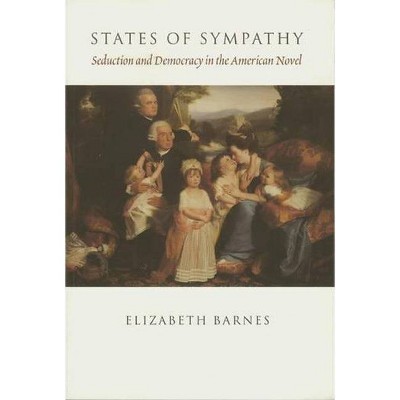States of Sympathy - by Elizabeth Barnes (Paperback)

Similar Products
Products of same category from the store
AllProduct info
<p/><br></br><p><b> About the Book </b></p></br></br><p>Explores the extent to which sympathy and sentiment--through the representation of the family--are increasingly employed to construct the notion of a politically affective state in philosophical, political and literary texts. The book offers fresh interpretations of classic and lesser-known works, from Susanna Rowson's <i>Charlotte Temple</i> to Herman Melville's <i>Billy Budd.</i></p><p/><br></br><p><b> Book Synopsis </b></p></br></br>Explores the extent to which sympathy and sentiment--through the representation of the family--are increasingly employed to construct the notion of a politically affective state in philosophical, political and literary texts. The book offers fresh interpretations of classic and lesser-known works, from Susanna Rowson's Charlotte Temple to Herman Melville's Billy Budd.<p/><br></br><p><b> Review Quotes </b></p></br></br><br>Barnes covers a lot of textual ground in articulating her assertion that 'American culture's preoccupation with familial feeling as the foundation for sympathy, and sympathy as the basis of a democratic republic, ultimately confounds the difference between familial and social bonds.' She makes her argument by referring to a wide variety of literary texts and to a number of philosophers, including Locke, Paine, and Francis Hutcheson.<br><p/><br></br><p><b> About the Author </b></p></br></br>Elizabeth Barnes is associate professor of English at the College of William and Mary.
Price History
Price Archive shows prices from various stores, lets you see history and find the cheapest. There is no actual sale on the website. For all support, inquiry and suggestion messagescommunication@pricearchive.us



















